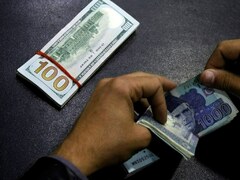Scientists in Britain and Thailand may have discovered why people who get infected again and again by dengue viruses suffer more severe symptoms like hemorrhagic fever and shock, and sometimes die. Transmitted by mosquitoes, there are four different dengue types. People who are infected again and again by a different dengue type tend to get severely ill, but experts have not been able to explain why.
In a study published in Science on May 07, researchers said they analysed blood samples donated by infected volunteers and found the human immune system produces a type of antibody called prM to fight off the dengue virus. But these were far from perfect.
"When a person who has already been infected with one strain of dengue virus encounters a different strain of dengue virus, the prM antibodies awakened during the first infection spring into action again," the researchers wrote in a statement. "Rather than protecting the body from the second infection, these prM antibodies help the virus to establish itself."
Led by Wanwisa Dejnirattisai and Gavin Screaton from the department of medicine at Imperial College London, the scientists said vaccine makers should steer clear of using prM antibodies. Designing a dengue vaccine or treatment is vital as global cases have shot up because of urbanisation, warmer temperatures and the constant movement of people - conditions that allow the Aedes aegypti mosquito, which carries the virus, to thrive.
The World Health Organisation has estimated that 2.5 billion people live in more than 100 endemic countries and areas where dengue viruses can be transmitted.
Between 50 and 100 million infections occur annually with 500,000 cases of dengue hemorrhagic fever (DHF) and 22,000 deaths, mainly among children. Dengue is expensive, costing an average of $1,394 for every hospitalised patient. At least 10 working days are lost in each case, according to the WHO. "Our new research gives us some key information about what is and what is not likely to work when trying to combat the dengue virus. We hope that our findings will bring scientists one step closer to creating an effective vaccine," the scientists wrote.
BR100
15,103
Increased By
140.9 (0.94%)
BR30
42,619
Increased By
540.8 (1.29%)
KSE100
148,196
Increased By
1704.8 (1.16%)
KSE30
45,271
Increased By
438.2 (0.98%)






















Comments
Comments are closed.